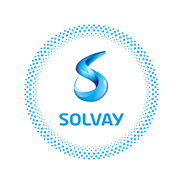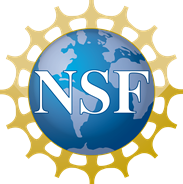
November 26 - December 1, 2023
Boston, Massachusetts
Symposium Supporters
2023 MRS Fall Meeting & Exhibit
Symposium SB06-Experimental and Computational Advances in Biomolecular Electronics
This symposium will cover recent advances in BioMolecular Electronics. In particular, the focus will be on recent advances in measuring and tuning the charge transport through individual biomolecules or biological complexes. The first part will focus on the latest experimental advances in charge transport measurements in biomolecules at the single-molecule level, including self-assembling approaches that use biomolecules to generate nanostructures and nanodevices. The second will highlight computational methods and emerging data analysis, such as Machine Learning applied to study these fascinating systems. Joint sessions will be flexible, too, including combined and synergistic research to stimulate discussions.
Materials science in general, and nanoscience and nanotechnology, in particular, have promised multiple applications enabled by an unprecedented control of matter. One of them is the ultimate miniaturization of electronic components and circuits to the scale of individual molecules. This exciting field is known as Molecular Electronics. Shortly after opening the door for reliable single-molecule conductance measurements, biomolecules were also considered for these studies. The field of single-molecule bioelectronics has experienced a boom in the last decades. Nanoscience tools such as Scanning Tunneling Microscopy (STM) or Break-Junctions have enabled single-molecule electronic studies of biomolecules, including nucleic acids, peptides, redox proteins, and more complex biosystems. BioMolecular Electronics is an emerging field with applications that may contribute to solving present and future societal challenges.
Materials science in general, and nanoscience and nanotechnology, in particular, have promised multiple applications enabled by an unprecedented control of matter. One of them is the ultimate miniaturization of electronic components and circuits to the scale of individual molecules. This exciting field is known as Molecular Electronics. Shortly after opening the door for reliable single-molecule conductance measurements, biomolecules were also considered for these studies. The field of single-molecule bioelectronics has experienced a boom in the last decades. Nanoscience tools such as Scanning Tunneling Microscopy (STM) or Break-Junctions have enabled single-molecule electronic studies of biomolecules, including nucleic acids, peptides, redox proteins, and more complex biosystems. BioMolecular Electronics is an emerging field with applications that may contribute to solving present and future societal challenges.
Topics will include:
- Single-molecule electrical measurements on nucleic acids
- Single-molecule measurements on peptides, proteins, and biomolecular interactions
- BioMolecular Spintronics
- Quantum effects in the charge transport through Biomolecules
- Single-molecule Electrical Biosensors
- BioMolecular Electronics applications in nanotechnology: bottom-up approaches and self-assembled circuits
- Coupled Molecular Dynamics-Quantum Transport Calculations
- New experiment-theory-computation synergies in BioMolecular Electronics
- Emerging computational approaches: Machine Learning in BioMolecular Electronics
- Data analysis for single-molecule results interpretation
- Experimental advances and New techniques in biomolecular electronics
- Emerging BioMolecular Electronics Applications
- The Charge Transport Mechanisms in Biomolecules: Experimental Evidence, Computational approaches, and current controversies
Invited Speakers:
- Nadav Amdursky (Technion–Israel Institute of Technology, Israel)
- Albert Aragones (Universitat de Barcelona, Spain)
- David Cahen (Weizmann Institute of Science, Israel)
- James Canary (New York University, USA)
- Ismael Diez-Perez (King's College London, United Kingdom)
- Andy Ellington (The University of Texas at Austin, USA)
- Ersin Emre Oren (TOBB University of Economics and Technology, Turkey)
- Yueqi Li (University of Science and Technology of China, China)
- Stuart Lindsay (Arizona State University, USA)
- Hashem Mohammad (Kuwait University, Kuwait)
- Vladimiro Mujica (Arizona State University, USA)
- Tomoaki Nishino (Tokyo Institute of Technology, Japan)
- Luisa Torsi (Università degli Studi di Bari Aldo Moro, Italy)
Symposium Organizers
Anant Anantram
University of Washington
USA
Juan Artes Vivancos
University of Massachusetts Lowell
USA
Joshua Hihath
University of California, Davis
USA
Linda Angela Zotti
Universidad Autónoma de Madrid
Fisica Teorica de la Materia Condensada
Spain
Topics
biological
biological synthesis (assembly)
biomimetic (assembly)
DNA
electrical properties
electronic structure
nanoscale
protein
scanning tunneling microscopy (STM)
self-assembly




-2.tmb-mtg_rel_ad.png?Culture=en&sfvrsn=a4240c09_1)

























